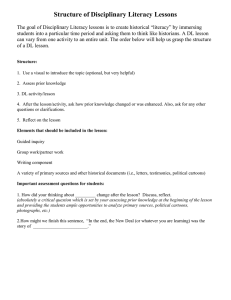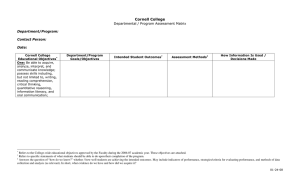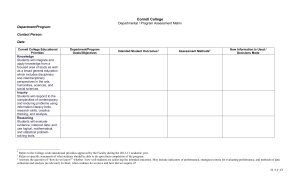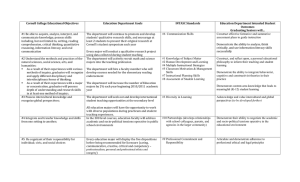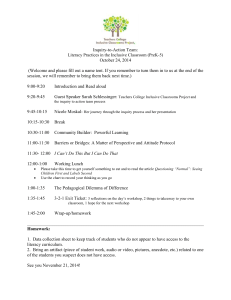Suggested Mapping of Current Educational Priorities to Learning Objectives
advertisement
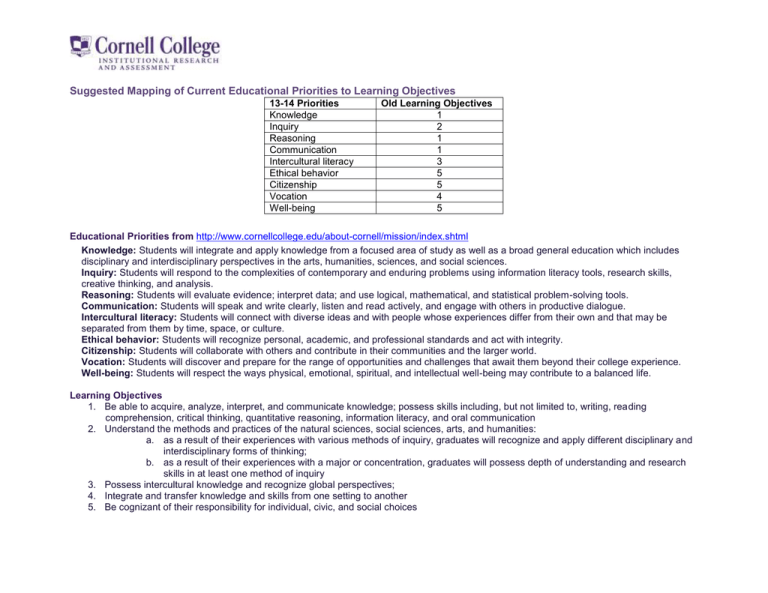
Suggested Mapping of Current Educational Priorities to Learning Objectives 13-14 Priorities Knowledge Inquiry Reasoning Communication Intercultural literacy Ethical behavior Citizenship Vocation Well-being Old Learning Objectives 1 2 1 1 3 5 5 4 5 Educational Priorities from http://www.cornellcollege.edu/about-cornell/mission/index.shtml Knowledge: Students will integrate and apply knowledge from a focused area of study as well as a broad general education which includes disciplinary and interdisciplinary perspectives in the arts, humanities, sciences, and social sciences. Inquiry: Students will respond to the complexities of contemporary and enduring problems using information literacy tools, research skills, creative thinking, and analysis. Reasoning: Students will evaluate evidence; interpret data; and use logical, mathematical, and statistical problem-solving tools. Communication: Students will speak and write clearly, listen and read actively, and engage with others in productive dialogue. Intercultural literacy: Students will connect with diverse ideas and with people whose experiences differ from their own and that may be separated from them by time, space, or culture. Ethical behavior: Students will recognize personal, academic, and professional standards and act with integrity. Citizenship: Students will collaborate with others and contribute in their communities and the larger world. Vocation: Students will discover and prepare for the range of opportunities and challenges that await them beyond their college experience. Well-being: Students will respect the ways physical, emotional, spiritual, and intellectual well-being may contribute to a balanced life. Learning Objectives 1. Be able to acquire, analyze, interpret, and communicate knowledge; possess skills including, but not limited to, writing, reading comprehension, critical thinking, quantitative reasoning, information literacy, and oral communication 2. Understand the methods and practices of the natural sciences, social sciences, arts, and humanities: a. as a result of their experiences with various methods of inquiry, graduates will recognize and apply different disciplinary and interdisciplinary forms of thinking; b. as a result of their experiences with a major or concentration, graduates will possess depth of understanding and research skills in at least one method of inquiry 3. Possess intercultural knowledge and recognize global perspectives; 4. Integrate and transfer knowledge and skills from one setting to another 5. Be cognizant of their responsibility for individual, civic, and social choices
